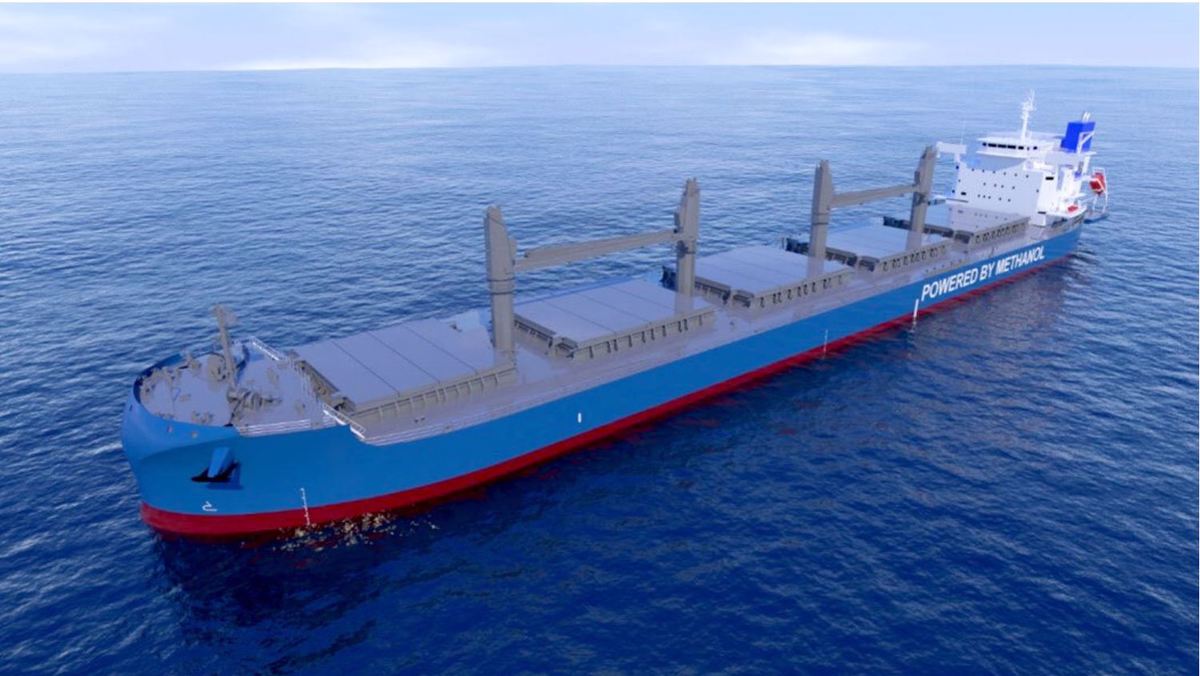MOL to charter Kambara Kisen's upcoming methanol dual-fuel vessel
Kambara Kisen, the shipping arm of Japan’s Tsuneishi Group, has ordered a methanol dual-fuel bulk carrier slated for delivery in 2027.
 PHOTO: Concept image of the newbuilding methanol dual-fuel bulk carrier. MOL
PHOTO: Concept image of the newbuilding methanol dual-fuel bulk carrier. MOL
“The vessel will feature a dual-fuel combustion main engine that can run on methanol, or heavy oil as a backup fuel,” Kambara Kisen has announced.
The vessel will be constructed by Tsuneishi Shipbuilding and chartered to MOL from 2027 onwards. It will be primarily powered by e-methanol and bio-methanol in the future, according to MOL.
E-methanol, or synthetic methanol, is produced using 100% biogenic carbon dioxide (CO2) and green hydrogen. The biogenic CO2 is typically captured through either bioenergy with carbon capture and storage (BECCS) or through direct air capture (DAC). E-methanol is virtually free of greenhouse gases and can cut a vessel's CO2 emissions by 95% compared to conventional marine fuels on a well-to-wake basis.
Biomethanol, on the other hand, is produced from sustainable biogas. Its production requires little to no fossil fuel usage, reducing its overall carbon footprint. However, it can emit CO2 and carbon monoxide, which are naturally present in waste streams. In spite of this, it has a significantly lower carbon footprint than conventional fuels.
The 81,500-cbm vessel will be primarily used to transport biomass fuels from the east coast of North America to Europe, the UK and the Pacific region. It will also transport grain to Europe and East Asia from the east coast of South America and the US Gulf Coast, MOL said.
Methanol is already gaining acceptance as a cleaner alternative fuel in the shipping sector. Classification society DNV’s Alternative Fuel Insight data shows that currently there are 204 confirmed methanol-fuelled vessels in operation and on order.
Meanwhile, MOL plans to operate 90 LNG or methanol-fuelled vessels by 2030. It also plans to secure green methanol, "not only in terms of fleet planning of methanol dual fuel vessels, but also in procurement of low and decarbonized methanol fuel.” MOL said.
By Konica Bhatt
Please get in touch with comments or additional info to news@engine.online






